The genesis of this two-part column was in a discussion I had recently with surgeons Rami Lutfi, MD, and Jaime Ponce, MD, about issues concerning private versus employed versus academic practice. Increasing attention is being given to the decision to enter each of these occupational settings, and with good reason. At a time when our health care system is in flux, the model on which surgeons practice matters, as each choice has undergone critical change. It affects not only compensation but also basic job descriptions, expectations of role and accountability, work hours, liability, and quality of life beyond the workplace; meanwhile, hospital system bureaucracies, insurance requirements, documentation demands, outcomes measures and the business of running a business become an increasing burden. Students graduating from medical school today have a different set of variables to consider than most readers did when they made the decision to follow one of these employment paths. Drs. Lufti and Ponce highlighted some of the difficulties of each path in the current health care environment, and we aimed to get perspectives on each in this column with these participants—who, as a group, provide good representation for each model. Part 2 of this column will appear in a future issue.
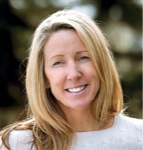
Thank you to all of this month’s contributors for sharing their thoughts on these employment models and the changing face of each. Please feel free to email me at colleen@cmhadvisors.com with any ideas or comments!
Colleen Hutchinson is a medical communications consultant at CMH Media, based in Philadelphia. She can be reached at colleen@cmhadvisors.com.
| |||||||||||||||||||||||||
Statement: Private practice is dying, and real “private practice” is more difficult today.
Dr. Billy: Disagree. Just because something is changing doesn’t mean it is dying. I’ve been in private practice since 1997, and although some of my colleagues and friends have left to take employed positions, the rewards of private practice still make it well worth the efforts. Private practice has always been more difficult. Physicians have had to invest resources and time to understand billing, manage employees and change as health care and reimbursement change.
Why it isn’t dying: How can something be dying if my clinic is full and I have a sufficient number of operations to perform? A properly managed office can still run in the black, and there are plenty of us still choosing to stay in business.
Dr. Lutfi: Agree (more with the second part). Practicing medicine is no longer solely about patient care. Rules and regulations are becoming more complex and difficult to understand and apply. Between EMR, MACRA, MIPS and MBASQIP, independent physicians are often confused and need major investment to acquire and satisfy these quality measures with not much time left to put to actual patient care. “Quality cost,” in addition to increasing malpractice premiums in states without caps, is making the final tab prohibitive to survival for most small practices.
Nevertheless, practices that excel in efficiency and quality will likely survive. Being business-savvy is as critical as being a good doctor and an excellent technician.
At the end of the day, it’s a simple survival formula: collections minus overhead. Those practices that end up with a positive balance will survive, while those that cannot optimize collection and control overhead will end up in the negative and “die”!
Present resident training, work hour restrictions, fear of insurance requirements, compliance, cost of EMR and other quality measures, as well as overall business aspects of running a private practice, are creating a shift in the workforce toward the employed model.
Dr. Weaver: On the fence. With respect to bariatric surgery, I agree that private practice is more difficult today, particularly due to the burdensome insurance requirements to get a patient approved for surgery, and the need for additional staff to meet those requirements. However, I disagree that private practice as a whole is dying. It will be interesting to see if the current trend of hospital employment is a “pendulum swing” as it has been in the past. Many physicians in other specialties as well as ours are maintaining their independence from hospital systems and continue in thriving private practices.
Dr. Voeller: Agree. I have been doing this for almost 30 years. One of the more distressing issues is the takeover of medicine by everyone except the physicians. Even though I am an academic surgeon, I practice in two large community hospitals. These hospitals have bought up all the primary care physicians in the city, and these physicians get bonuses for referring to surgeons within the hospital surgical group. The solo surgeon is out of the loop. There are still a few private practices going it alone, but it is becoming more and more difficult for them to survive.
Dr. Telem: On the fence. Private practice is more changing than dying. It is definitely more difficult today to be a solo practitioner in private practice.
Dr. Ponce: Agree. Even though there are still many successful private practices, the reality is that every year fewer surgeons are joining or staying in private practice. The system is making it more difficult, and in the future there will be very few private practice surgeons.
Dr. Blackstone: Disagree. Private practice still thrives in many places around the country. In order to contract, some private practice groups have formed business structures that can bid on contracts. Sixteen percent to 31% of physicians work in practices that are owned by hospitals. It is more difficult specifically in primary care to fund a private practice outside a concierge-type service (Baker LC, et al. Hospital ownership of physicians: hospital versus physician perspectives. Med Care Res Rev 2016 Nov 2. [Epub ahead of print]).
Dr. Rosato: Agree. Statistics show the number of independently employed physicians has decreased by almost 50% from 2008 to 2014. A myriad of factors contribute to this trend, including declining reimbursements, rising malpractice costs, increasing regulatory demands, cost of electronic medical records and the Affordable Care Act. Compounding these fiscal costs are the limited scope of services graduating trainees are comfortable providing. Subspecialization and additional training through fellowships serve to narrow a surgeon’s focus of expertise toward a smaller patient population, thus resulting in less opportunity to generate revenue.
Dr. Kothari: Agree. I tell all medical students, residents and fellows that “the days of hanging up your shingle and just being really good at your job” will not translate into being successful in today’s practice environment. The field of surgery has always been burdened with bureaucratic overhead and excessive paperwork. But recent changes in health care are making it very difficult for the true private practitioner to survive. The focus on quality and fee-for-value rather than fee-for-service are noble, but come at a heavy price when it comes to the resources necessary to achieve this. Many private practice groups simply cannot afford the resources necessary to be in compliance.
Statement: Private practice is more lucrative than academic surgery, but those in private practice also work harder.
Dr. Ponce: On the fence. This used to be true, but now some academic surgery departments are being run like private practices and also want financial stability and require productivity out of their academic surgeons.
Dr. Telem: Disagree. I think everyone—whether in academic, employed or private practice—works equally hard. Work just may be defined differently. There is also increasing pressure in academics around clinical productivity. The lines are not as distinct.
Dr. Voeller: Agree and disagree. It depends on the practice and the academic surgeon. In general, the statement is correct; however, I work just as hard or harder than my private practice colleagues. This is certainly not true for every academic surgeon.
Dr. Lutfi: Agree, although an increasing number of private practitioners are making less money than academic surgeons due to the continuous increase in overhead while reimbursement continues to decrease.
Aside from volume, reimbursement in an employed model is based on complexity of work known as the relative value units [RVUs]. This means that compensation is guaranteed as long as the work is done. In private practice, reimbursement is mainly based on insurance type and contracts. For those who continue to cover emergency rooms, serving those without insurance will not result in any payment while contributing as much to overhead. While unique practices can carve out higher reimbursements from certain insurers, those lucrative contracts are usually awarded only to larger entities. This makes it difficult for smaller practices to get optimal reimbursement without the umbrella of a larger entity and contribute to their demise.
I still believe, however, that practices that find a way to survive these challenging times in health care will be well positioned in the future. This is because, when the vast majority of surgeons are tied to a large entity (as I expect the future to be), those smaller, more accessible practices will be heavily sought for their prompt care, unique dealing and excellent outcome.
Dr. Billy: Disagree. The myth of private practice being more lucrative than academic surgery has many aspects to consider. Living in California, I have access to the academic salaries that are paid to my colleagues at the University of California as they are published online. For the most part, the salaries are competitive with many private practice physicians. In addition, the academic physicians are accumulating significant retirement benefits that will provide for many of those physicians a more stable transition from employment to retirement. If a private practice physician can avoid being a contracted physician and can remain largely out of network, there is a possibility that practice will be much more lucrative, but those opportunities are becoming more limited.
Hard work is a matter of opinion. Doing research, managing residents, and writing papers and attending academic and departmental meetings are not stuff I wanted to prioritize. Private practice allows me to take time off when I want and manage my priorities in my life without someone telling me what to do. Although I work harder running my practice, I think to state that the private practice physician works harder than the academic physician might be inaccurate and based solely on opinion. Many times, the rewards of working harder also translate into financial gain or opportunities that would not be there as an employed physician.
Dr. Kothari: On the fence. I have always considered academic a mindset rather than a model of reimbursement. I would prefer the term university-based surgeon versus community or private practice surgeon. Some of the most “academic” surgeons I know are in private practice. In contrast, I have known a few surgeons who have worked at universities who I felt practiced anything but academic evidence-based surgery. In general, private practice surgeons have had higher salaries in the fee-for-service model mostly because their primary passion has been simply that: performing surgery. However, university surgeons can still work very hard and have to balance a successful clinic practice along with their teaching and research requirements. If anything, I have seen a shift to more RVU-based models in the university system and less emphasis on the “publish or perish” paradigm.
Dr. Weaver: Disagree. All surgeons work very hard, although it may be in differing arenas. I am greatly appreciative of our academic surgeons who drive much of the research in our field, as well as the education of the future generation of surgeons. I would love to see more collaboration in both training and research between academic and private practice/hospital-employed surgeons.
Dr. Rosato: On the fence. Private practice offers the potential of being more lucrative through a focused pursuit of revenue-generating activities with limited overhead costs. Academic surgeons must balance time constraints between revenue generation, resident teaching, administrative duties and research opportunities, while also incurring large overhead costs of a department. If you define hard work as the number of cases performed or the number of RVUs generated per year, then private practitioners work harder. If one takes into account all of the non–revenue-generating activities an academic surgeon performs, then in my opinion, both academic and private practitioners work equally as hard.
Dr. Blackstone: Disagree. Academic practice very much reflects private practice. Most hospitals are funded by the surgical services to a large extent in service lines that generate a comfortable contribution margin to the bottom line. Academic surgeons are often called upon by contract to produce a high number of RVUs. In addition, after a long day in the operating room or clinic, the academic person dials into a committee meeting or works on research, presentations or manuscripts.
Statement: Academic surgeons generally have to move often in order to be promoted.
Dr. Billy: Agree. Every academic physician I know has moved. All of them have been promoted following their moves.
Dr. Voeller: Disagree. I am a full-time academic surgeon with the rank of professor. I have been in the same place for the entire 30 years of my practice. Politics certainly plays a role in academic surgery, and this is often the reason for academic surgeons moving frequently.
Dr. Rosato: Agree. Most academic surgeons are motivated to rise up through the ranks of academia. With promotion come prestige, autonomy and financial reward. The highest ranks in a surgery department are coveted positions in which tenure is important for departmental stability. Academic surgeons must realize opportunities are more likely to occur outside one’s own institution, thus necessitating a move to obtain promotion.
Dr. Telem: Disagree. Academic promotion is based on a specific algorithm that takes into account research and educational productivity. Moving institutions does not change the fundamentals of your CV. Moving, however, can help or hurt you depending on if you move to an institution with less or more stringent requirements.
Dr. Blackstone: Agree. True of the older generation, but it may be that some in “academic” practices really are more like private practice surgeons and will tend to stay in the area where they have built a personal reputation and practice.
Dr. Ponce: Agree. Escalating in the academic environment requires replacing another one in a higher position; in many instances will be easier to find it outside of their present job. Not always true, but most commonly.
Dr. Kothari: Agree. I will preface my comments by saying I have never worked in a university model except for my fellowship, where I held the prestigious title of clinic instructor. It has been my observation that those who want to rise to the level of full professor and ultimately chairman of surgery (if that is one’s goal) tend to have to move to do this. I think it can be done without moving, but it appears to take more time if one stays locally.
Dr. Lutfi: Agree. In private practice—like any business—the longer you stay around, the busier you get, provided your product remains superior and in high demand. This is because word of mouth and physician referrals grow with time in a defined geographic area.
While many academic surgeons build names and reputations that draw patients to the institution, the majority thrive on the name and reputation of their institution instead.
Therefore, moving tends not to affect the practice volume of academic surgeons while helping to accelerate their advancement in academic rank and offer better research opportunity and compensation. Those who stay in the same institution typically have to wait “their turn” to move up the ranks (academically and financially) with no guarantees.



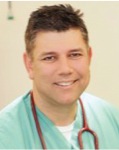
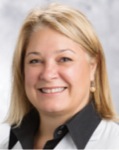
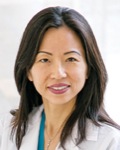
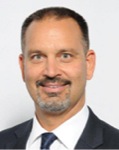
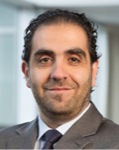
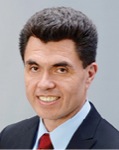
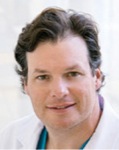
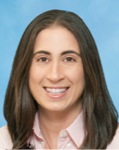
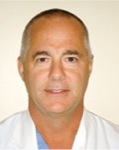



Please log in to post a comment